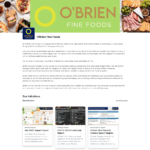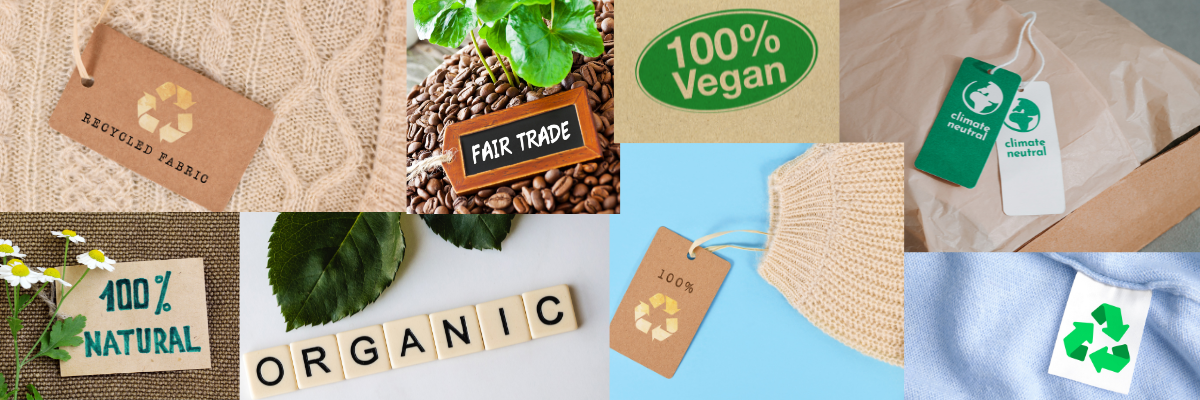
See how O’Brien Fine Foods is using ENSO to further along their sustainability goals
August 16, 2023
See how Shines Seafood is using ENSO to share their sustainability story
October 26, 2023The EU put together a proposal for its Empowering Consumers for the Green Transition directive in March 2022. The goal of this proposal is to stop companies from promoting misleading claims about sustainability credentials of their products. The latest update is that the EU has tentatively agreed to vote this proposal into law. If and when this happens, greenwashing will effectively be banned in the EU.
In this blog we will discuss the specifics of the proposal, who will be impacted by it, when it will be implemented, and what it means for you as a business. First, let’s have a quick refresher on what greenwashing is.
What is Greenwashing?
Greenwashing refers to when companies create a false impression of being environmentally friendly through their marketing materials, including labelling, social media posts, and adverts. On top of this, greenwashing can also include covering up or downplaying negative impacts that a company or product may have. This practice is not always intentional, but is always misleading to consumers. It is incredibly important to be credible, transparent and honest about your environmental claims. To learn more, check out our blog on the importance of authenticity in sustainability marketing.
Now, let’s get into the specifics of the proposal for the EU’s Empowering Consumers for the Green Transition directive.
What is Banned by the Directive?
The new directive has an overall goal of banning generic environmental claims. Any claims made by a business will need to be substantiated by proof of their performance relative to the claim. This proof can be through compliance with official EU regulations or recognised green labelling schemes. This may seem very official, but in simple terms, the goal is to force businesses to have the data to back up their environmental performance claims, allowing consumers to make informed purchasing decisions.
Companies will also not be allowed to make a claim about their entire product when it actually only applies to a specific aspect of the product. For example, in the case of packaging, if the outer cardboard box you use is recyclable but the inner plastic bag is not, you cannot claim that all of the product is recyclable. This may seem straightforward, but disposal labelling can be misleading and confusing. This proposal aims to reduce this confusion to ensure proper disposal and communication.
Within the proposal, there are specific words and terms that will be banned in marketing of products. The purpose of this is to further prohibit generic environmental claims. Examples of these banned words include:
- Carbon neutral
- Climate neutral
- Environmentally friendly
- Eco-friendly
- Eco
- Green
- Natural
- Biodegradable
- Carbon friendly
- Carbon positive
- Energy efficient
- Bio based
- Nature’s friend
- Ecological
Other Aspects of The Directive
The directive also includes other requirements relating to product lifespan, durability, and repairability claims. Companies will be required to disclose product lifespans and are prohibited from adding features that are designed to limit a product’s durability and lifespan. On top of this, companies will have to be more transparent about repairability, product guarantees, and if applicable, software updates. Specifically:
- Products cannot be marketed as repairable if they are not
- Software updates cannot be called necessary if they actually only enhance functionality features
- Durability claims relating to usage time or intensity under normal conditions must be proven
Who Does this Directive Impact?

All companies that sell consumer products will be impacted by this legislation. However, the companies that will be the most affected will include the food and drink, travel and aviation, fashion and clothing, and tech and appliance industries. Because of the complex nature of these industries and the vast supply chains, there are more environmental claims to consider and to substantiate. If you are a part of one of these industries, don’t worry! The key to adapting to this legislation is keeping track of information relating to your environmental performance and sustainability journey. We can help you do this in a transparent, understandable, and accessible manner at ENSO!
When Will This Legislation Come Into Effect?
Currently, the Empowering Consumers for the Green Transition directive is just a proposal. However, it just needs final approval from the EU Parliament and Council, which is expected to come in November. While it is possible that the proposal gets denied, it is very unlikely and is against precedent, as the EU already has a tentative agreement in place to implement the directive.
When the directive is approved, member states will have 24 months to implement changes and incorporate the new rules into their laws. This means that, if the directive is approved. Greenwashing will be effectively banned in the EU by 2026. This progress is exciting, as it signifies there may also be movement on the implementation of the Green Claims Directive.
What Does This Mean For My Business?
The hopeful implementation of the Empowering Consumers for the Green Transition directive is an exciting step in the right direction – for both consumers and businesses. For consumers, they will be able to more confidently make sustainability informed purchasing decisions. As a business, your sustainability actions will be substantiated and you will be able to confidently and transparently communicate all of your great work. This will help you to attract new customers and retain your current ones who are looking for truly sustainable options.
To ensure that you are prepared for these upcoming regulatory changes, we advise that you keep track of your progress across your sustainability activities, record relevant metrics and data, and make sure that your communications around any certifications or accreditations are relevant.
Using the ENSO platform, you can easily organise this information and share it with stakeholders in a transparent, accessible and understandable way. This will make sure that you are prepared with substantiated claims and a more sustainable business model when this directive comes into effect.
